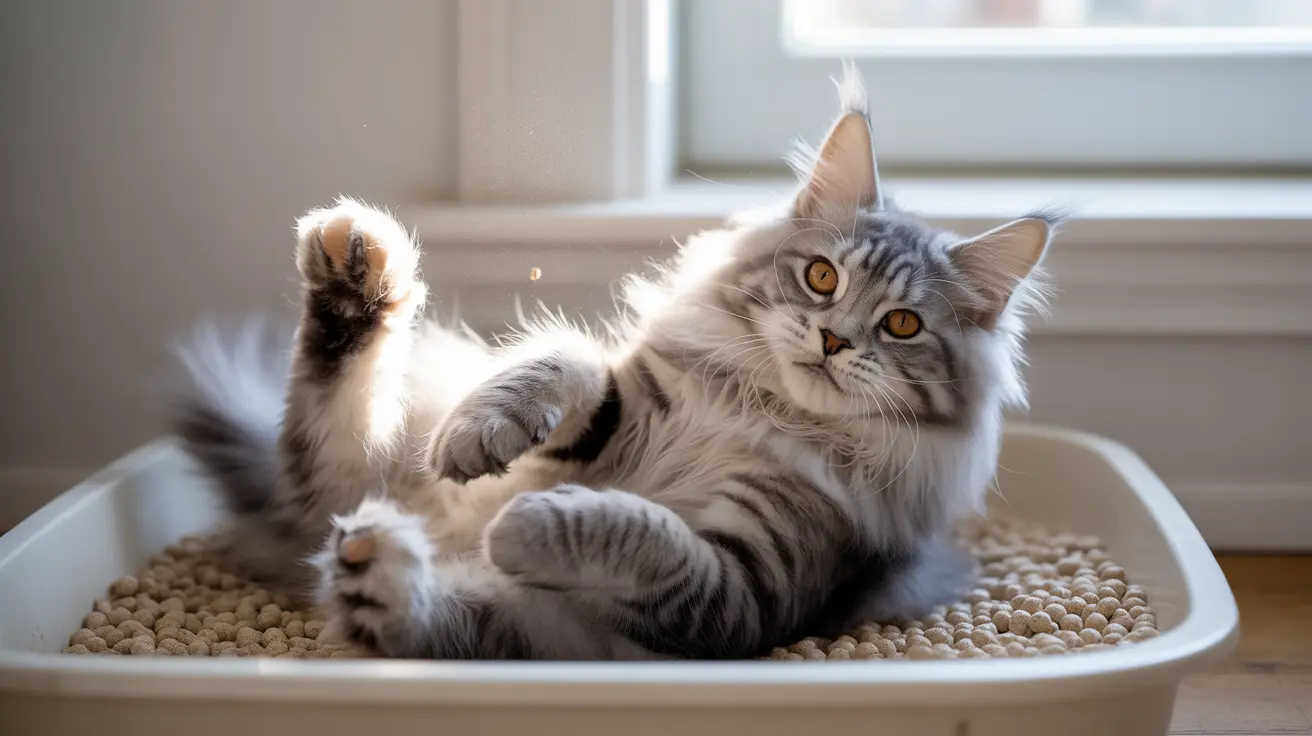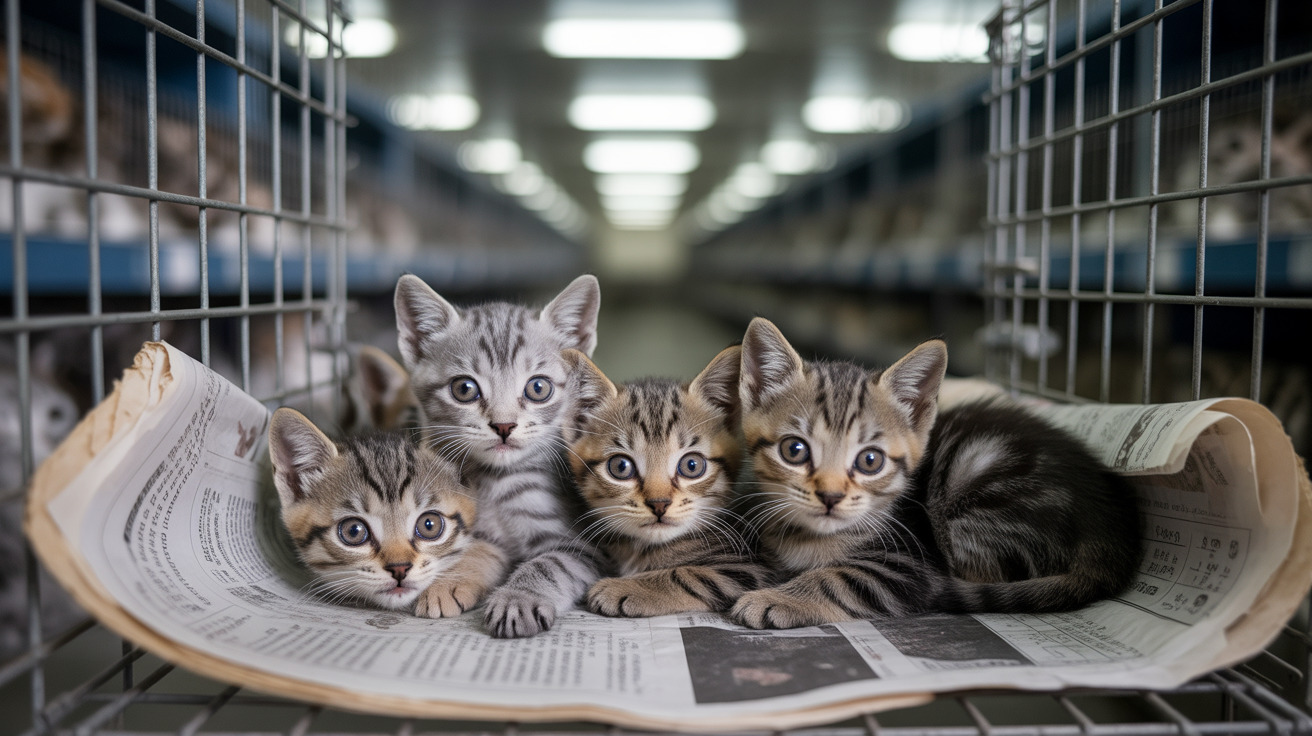Natural Instincts and Scent Marking
Cats are territorial creatures with numerous scent glands located on their bodies, particularly around their faces and sides. When your cat rolls in the litter box, they're often engaging in a natural scent-marking behavior that helps establish their territory.
This behavior becomes especially prominent after changes in the household, such as moving to a new home or introducing a new pet. By rolling in the litter box, cats leave their unique scent signature, creating a sense of security and ownership in their environment.
Comfort and Physical Satisfaction
Many cats find the texture of litter appealing and comfortable. This behavior can be traced back to their wild ancestors, who would engage in dust bathing for both grooming and comfort. Fresh litter, in particular, can provide a satisfying sensory experience for your feline friend.
The cool, granular texture of the litter might also offer relief during warm weather or help satisfy their natural urge to roll and stretch, similar to how they might roll in grass outdoors.
Stress and Anxiety Responses
Sometimes, increased litter box rolling can indicate stress or anxiety. Major life changes, such as moving homes, new family members, or alterations to their routine, might cause your cat to seek comfort in familiar spaces like their litter box.
In multi-cat households, some cats might spend more time in or around their litter box as a way to assert dominance or find a safe haven from more aggressive housemates.
Medical Considerations and Warning Signs
While rolling in the litter box is often normal behavior, it can sometimes indicate underlying health issues. If your cat suddenly increases this behavior or shows signs of discomfort, it might signal:
- Skin irritations or allergies
- Urinary tract infections
- Parasites or fleas
- General discomfort or pain
Pay particular attention if the rolling is accompanied by excessive grooming, vocalization, or changes in bathroom habits.
Creating a Healthy Litter Box Environment
To ensure your cat maintains a healthy relationship with their litter box:
- Keep the box clean and scoop daily
- Provide enough boxes (one per cat plus one extra)
- Place boxes in quiet, accessible locations
- Use cat-preferred litter types
- Maintain consistent depth (about 2-3 inches)
Frequently Asked Questions
Why does my cat roll around or play in the litter box after I clean it?
Cats often roll in freshly cleaned litter boxes because they enjoy the fresh texture and want to mark the clean space with their scent. This behavior helps them reclaim their territory and can be a sign of satisfaction with their clean bathroom space.
Can rolling in the litter box be a sign of medical problems like itching or urinary issues?
Yes, excessive rolling in the litter box can sometimes indicate medical issues such as skin irritations, urinary tract infections, or parasites. If this behavior is new, excessive, or accompanied by other concerning symptoms, consult your veterinarian.
What does it mean when my cat rolls in the litter box to mark their scent?
Scent marking through rolling is a natural territorial behavior that helps cats feel secure in their environment. It's their way of claiming the space and communicating their presence to other cats.
How can stress or changes in the household cause my cat to roll or spend more time in the litter box?
Cats may increase their litter box interactions during stressful periods because it's a familiar, safe space that contains their scent. This behavior can be a coping mechanism for dealing with environmental changes or anxiety.
What are safe ways to discourage my cat from rolling excessively or playing in the litter box?
To minimize excessive rolling or playing in the litter box, ensure your cat has plenty of environmental enrichment, including scratching posts, toys, and dedicated play areas. Maintain a clean litter box and consider providing alternative spaces for rolling and playing, such as cat beds or designated play zones.
Conclusion
While cats rolling in the litter box might seem unusual to us, it's typically a normal behavior rooted in their natural instincts and emotional needs. By understanding the reasons behind this behavior, you can better assess whether your cat's actions are normal or require veterinary attention. Remember to always monitor any significant changes in your cat's behavior and consult with your veterinarian if you have concerns.






